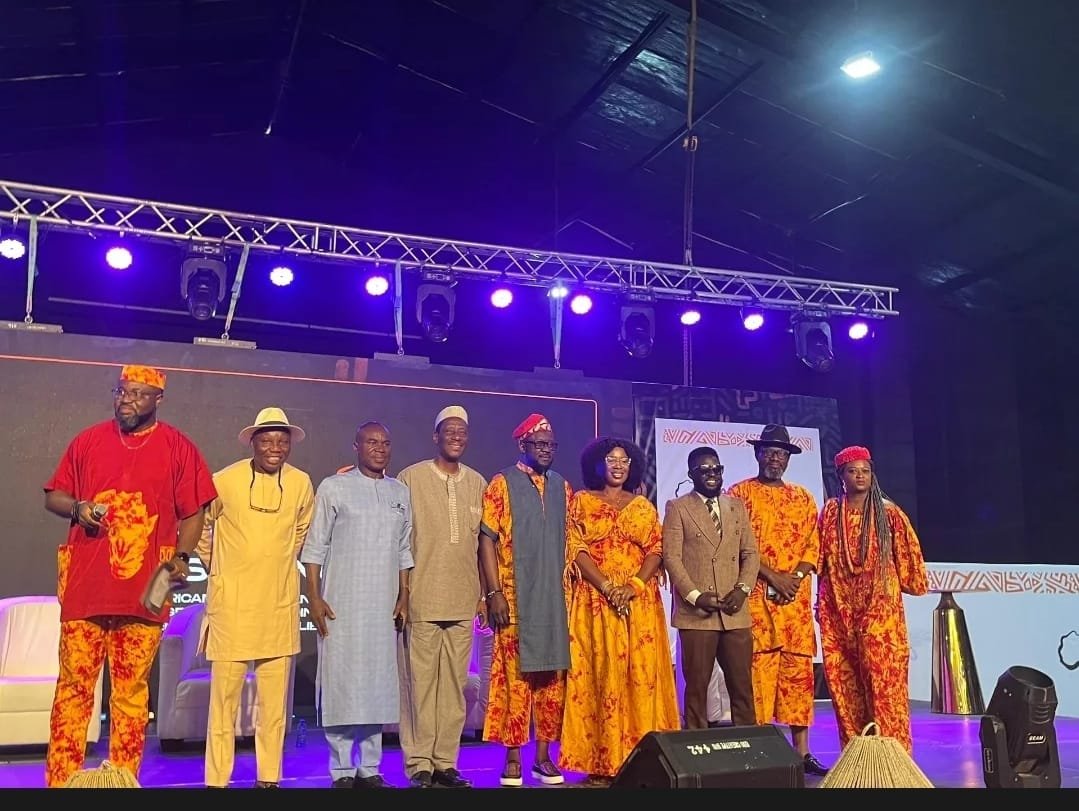Reclaiming African Heritage: Key Takeaways from the 2025 Annual Africa Family Life Delegate Conference
By Akinropo Akinola, Parenting and Fatherhood Development Strategist

The just-concluded Annual Africa Family Life Delegate Conference 2025, organized by the Institute of Family Engineering and Development (IFED) to commemorate the International Day of Families, marked a pivotal moment in discussions about preserving Africa’s heritage identity. This year’s event was held in Benin City, Edo State, Nigeria, after nine consecutive years in Lagos, a symbolic shift to spotlight Nigeria’s cultural heartlands.
It was a gathering of minds. The two-day conference was a blend of reflection, celebration, and strategy. Day one welcomed participants from across the continent – Africa, Europe, America, and North America – culminating in the “Practitioner Night”, where delegates shared personal journeys, challenges, and breakthroughs in promoting Family life practices. Day two, however, was the intellectual core, anchored by the theme: “Reclaiming Our Heritage and Strength”.
Speakers unanimously identified the erosion of African identity as a critical issue. A recurring narrative centered on how many African children grow up disconnected from their roots, often due to parental complacency or the overwhelming influence of Western culture. In a compelling panel session, yours truly emphasized the symbolic and prophetic role of African names in shaping identity. I quoted the Yoruba proverb, “Ile laawo k’a tọ́ s’ọmọ l’órúkọ” (We consider the home a child comes from before bestowing a name), take for instance, the name like Omoniyi (child is a virtue) is not mere labels but blueprints for destiny. Parents, then, must intentionally nurture children to embody the virtues embedded in their names—a practice often overlooked in modern parenting.

At the conference, I also linked the loss of indigenous languages to moral and cultural decay. I made a bold call for families to prioritize mother tongues at home. I reinstated further that speaking Yoruba (or any African language) to our children doesn’t diminish their humanity, it only reaffirms their innate identity. Language, participants agreed, is the vessel through which ancestral wisdom, respect, and communal values are transmitted.
Another standout takeaway as I had posited was the revival of storytelling as a tool for cultural preservation. African folktales, rich with moral lessons and historical truths, were hailed as “timeless curricula” for instilling pride and wisdom in children. Delegates urged parents and educators to resurrect this tradition, ensuring younger generations learn from the triumphs and mistakes of their ancestors. Storytelling as a strategic of old offers effective discipline through ancestral narratives. This was another standout at the conference that offers transformative educational tool for discipline, rooted in Africa’s instructive traditions. Unlike punitive measures, storytelling offers children a mirror to observe consequences vicariously through characters and critical thinking. For instance, tales like the Yoruba “Ìjàpá” (Tortoise) chronicles where greed or deceit leads to downfall teach children to internalize lessons on honesty and humility without feeling chastised.
This method aligns with what psychologists term vicarious learning: children absorb moral frameworks by analyzing characters’ choices, mistakes, and resolutions, making discipline an organic, reflective process rather than a forced mandate. By reviving this approach, parents can cultivate self-awareness and accountability, as children connect their actions to communal values preserved in these narratives. As a participant noted in a private discussion with her after the panel session; “Stories are the original African curriculum, they don’t just entertain; they engineer character.” This blew me off my feet. In an era of screen-dominated childhoods, reclaiming storytelling isn’t frivolous, it’s a strategic revival of a timeless, culturally resonant discipline system that equips children to navigate life’s complexities with ancestral wisdom as their guide.
The Path Forward

The conference closed with a positive narrative: reclaiming heritage begins at home. Practical strategies included:
- Intentional Naming: Choose names rooted in cultural meaning and nurture children to fulfill their legacy.
- Language Advocacy: Normalize indigenous languages in daily communication.
- Storytelling Revival: Use folktales to teach history, ethics, and identity.
The 2025 conference was more than a dialogue, it was a clarion call to action. As Africa navigates globalization, the event reminded attendees that cultural identity is not a relic of the past but a compass for the future. By reclaiming names, languages, and traditions, families can equip children to thrive as Africans, unapologetically rooted in their heritage.
This is the truth we must defend.
A cultural preservation into child development frameworks.
A mission we must all champion.





